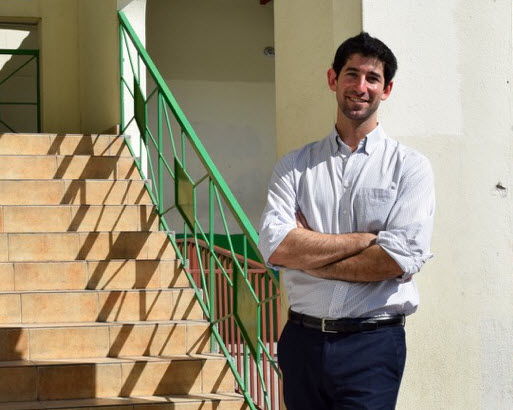
In 2009, Max Kligerman was a junior majoring in political science when he participated in DukeEngage and traveled to Haiti for the first time. That summer not only led him to become one of the first Duke students to graduate with distinction in global health, but it also, he says, “sealed the deal” for him to go on to medical school after graduation.
“I always knew I wanted to work in a field where I could help people,” said Kligerman. “But it was not until I spent the summer in Haiti that I knew I wanted to be a doctor.”
He spent the summer of 2009 working under the mentorship of David Walmer, associate professor of the practice of global health and board chair of Durham, North Carolina-based Family Health Ministries (FHM). FHM was planning to build a women’s health center in a rural outpost outside the city of Leogane, so they asked Kligerman to travel around the district and compile a census of health care providers.
“We wanted to know what the health care capacity was in the area where we were looking to build our clinic,” said Walmer. “More importantly, we wanted to learn who we could partner with to serve the health care needs of women in the area.”
Kligerman spent the summer visiting with more than two dozen health care providers, from one-room doctor’s offices to large hospitals. In the process, he built friendships with the locals, learned passable Creole—Haiti’s official spoken language—and created a sophisticated geo-targeted map of the area health care providers.
“By mapping clinics and speaking with health care providers that summer, I had the opportunity to really grow to understand health care in Haiti,” said Kligerman. “Despite the many challenges, I saw the joy and dedication of every physician I interviewed. I was blown away by their relationships with their patients and the community, and I realized I wanted to be able to develop the same thing.”
Then came the devastating earthquake of 2010, and many of those clinics were reduced to rubble.
So Kligerman returned to Haiti and started over. His pre- and post-earthquake survey of the area health care providers netted him four peer-reviewed journal articles, and several others are under review.
Since graduating from Duke, Kligerman has attended Harvard School of Public Health as a Zuckerman Fellow and graduated from Stanford School of Medicine. He is currently a resident at Stanford University, training as a head and neck surgeon.
But Kligerman can’t seem to shake Haiti. After DukeEngage, he has returned six times to work with various organizations, including the Center for Disease Control, the Ministry of Health, and FHM. He was also able to attend the dedication of the Carmelle Voltaire Women’s Health Center in February 2016.
Kligerman is grateful for his DukeEngage experience, which he says was “life-changing” and motivated him to dedicate his career to improving health care access for underserved communities. “Most physicians I know think of global health as an afterthought,” he said. “Because of that one transformative summer with DukeEngage, Haiti and global health are my forethought.”
